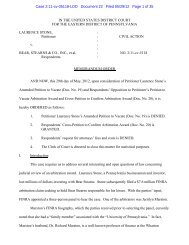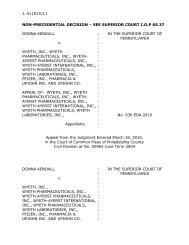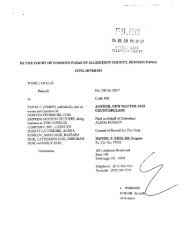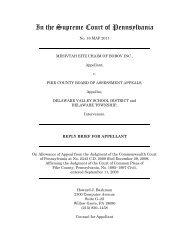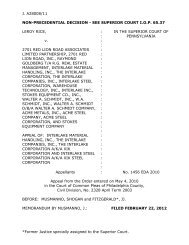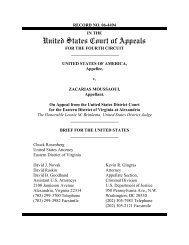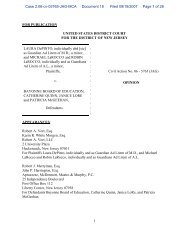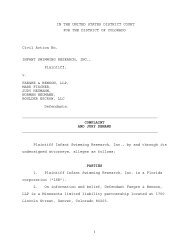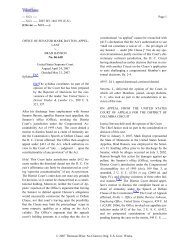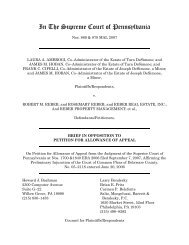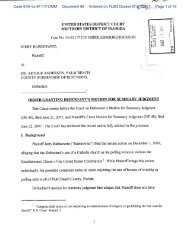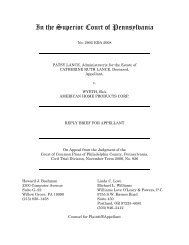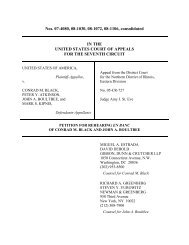In the Superior Court of Pennsylvania - How Appealing
In the Superior Court of Pennsylvania - How Appealing
In the Superior Court of Pennsylvania - How Appealing
You also want an ePaper? Increase the reach of your titles
YUMPU automatically turns print PDFs into web optimized ePapers that Google loves.
would have necessarily decided that plaintiffs’ lawsuits were timely filed as a<br />
matter <strong>of</strong> law, which <strong>the</strong> <strong>Superior</strong> <strong>Court</strong> expressly refused to do.<br />
Ra<strong>the</strong>r, in <strong>the</strong>se 14 cases, juries can resolve <strong>the</strong> discovery rule issue in favor<br />
<strong>of</strong> ei<strong>the</strong>r party; all that <strong>the</strong> <strong>Superior</strong> <strong>Court</strong> has done is correctly and unremarkably<br />
hold that defendants are not entitled to have <strong>the</strong> discovery rule issue presented in<br />
<strong>the</strong>se 14 cases resolved in <strong>the</strong>ir favor as a matter <strong>of</strong> law on summary judgment<br />
based on <strong>the</strong> records as <strong>the</strong>y now exist in <strong>the</strong>se cases. That fact–bound ruling is in<br />
accordance with this <strong>Court</strong>’s governing precedents and does not satisfy <strong>the</strong> criteria<br />
for allowance <strong>of</strong> appeal.<br />
III. THE PETITION FOR ALLOWANCE OF APPEAL SHOULD BE<br />
DENIED<br />
A. The <strong>Superior</strong> <strong>Court</strong> Correctly Applied Well–Established<br />
<strong>Pennsylvania</strong> Law <strong>In</strong> Holding That Applicability Of The<br />
“Discovery Rule” To Toll The Running Of The Statute <strong>of</strong><br />
Limitations Should Ordinarily Be Determined By A Jury<br />
Because allowance <strong>of</strong> appeal will be granted only when “special and<br />
important reasons” exist, see Pa. R. App. P. 1114, allowance <strong>of</strong> appeal is reserved for<br />
cases in which <strong>the</strong> <strong>Superior</strong> <strong>Court</strong> has issued a decision that ei<strong>the</strong>r has departed<br />
from established law or is in conflict with an earlier ruling <strong>of</strong> this <strong>Court</strong> or <strong>of</strong> <strong>the</strong><br />
Commonwealth <strong>Court</strong>. These 14 consolidated cases, however, do not satisfy any <strong>of</strong><br />
<strong>the</strong> criteria for allowance <strong>of</strong> appeal.<br />
Wyeth and Upjohn, in <strong>the</strong>ir Petition for Allowance <strong>of</strong> Appeal, incorrectly<br />
assert that <strong>the</strong> <strong>Superior</strong> <strong>Court</strong> has held that <strong>the</strong> discovery rule will toll <strong>the</strong> running<br />
– 22 –



